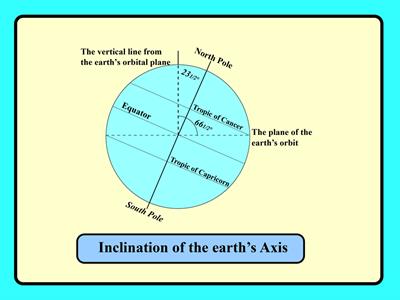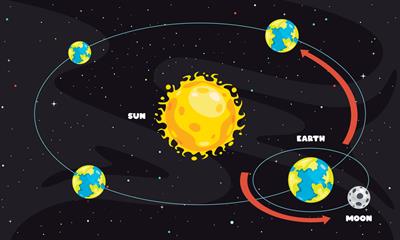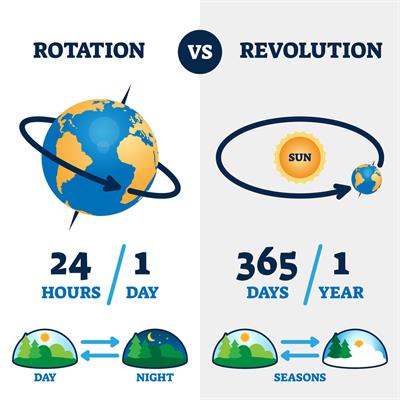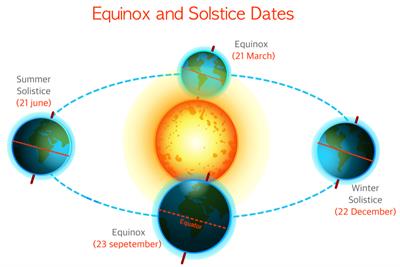PDF chapter test TRY NOW
Motions of the Earth
- Shape: Spherical
Inclination of Earth’s axis
- Earth rotates on its axis.
- Axis is an imaginary line that runs from the North Pole to the South Pole.
- Axis passes through the centre of the Earth.
- Tilted or inclined from the vertical by an angle of 23½°.
- Makes an angle of 66½° with the plane of the Earth’s orbit.

Velocity of the Earth’s rotation
- 1670 km per hour at the equator
- 845 km per hour at 60° N and S latitudes and
- Zero at the poles
Rotation
- It is the spinning movement of the Earth on its axis.
- The Earth rotates from west to east (anti-clockwise).
- It takes 23 hours 56 minutes and 4.09 seconds to complete one rotation.
- The line which divides the surface of the Earth into a lighted half and a dark half is called the Terminator Line.

Revolution
- It is the movement of the Earth around the Sun on its elliptical path.
- The Earth takes 365 ¼ days for it to complete one revolution.
- Revolution speed: 30 km per second.
- Inclination of the Earth on its axis and its revolution around the Sun cause different seasons
- The Northern Hemisphere is inclined towards the Sun: 21st March to 23rd September (6 months).
- The Southern Hemisphere is inclined towards the Sun: From Sep 23rd to March 21st (6 months).

Equinoxes
- Equator faces the Sun directly on 21 March and 23 September.
- The day and night are equal throughout the Earth.
Summer Solstice
- On 21st June, the Tropic of Cancer faces the Sun.
- Longest day in Northern Hemisphere and longest night in Southern Hemisphere.
Winter Solstice
- On 22nd December, the Tropic of Capricorn faces the Sun.
- Longest day in Southern Hemisphere and longest night in Northern Hemisphere.
| Summer Solstice | Winter Solstice | |
| Date | 21st June | 22nd December |
| Longest day (Hemisphere) | North | South |
| Longest night (Hemisphere) | South | North |

Aphelion & Perihelion
- Perihelion is the Earth’s closest position to the Sun.
- Aphelion is the farthest position of the Earth from the Sun.

